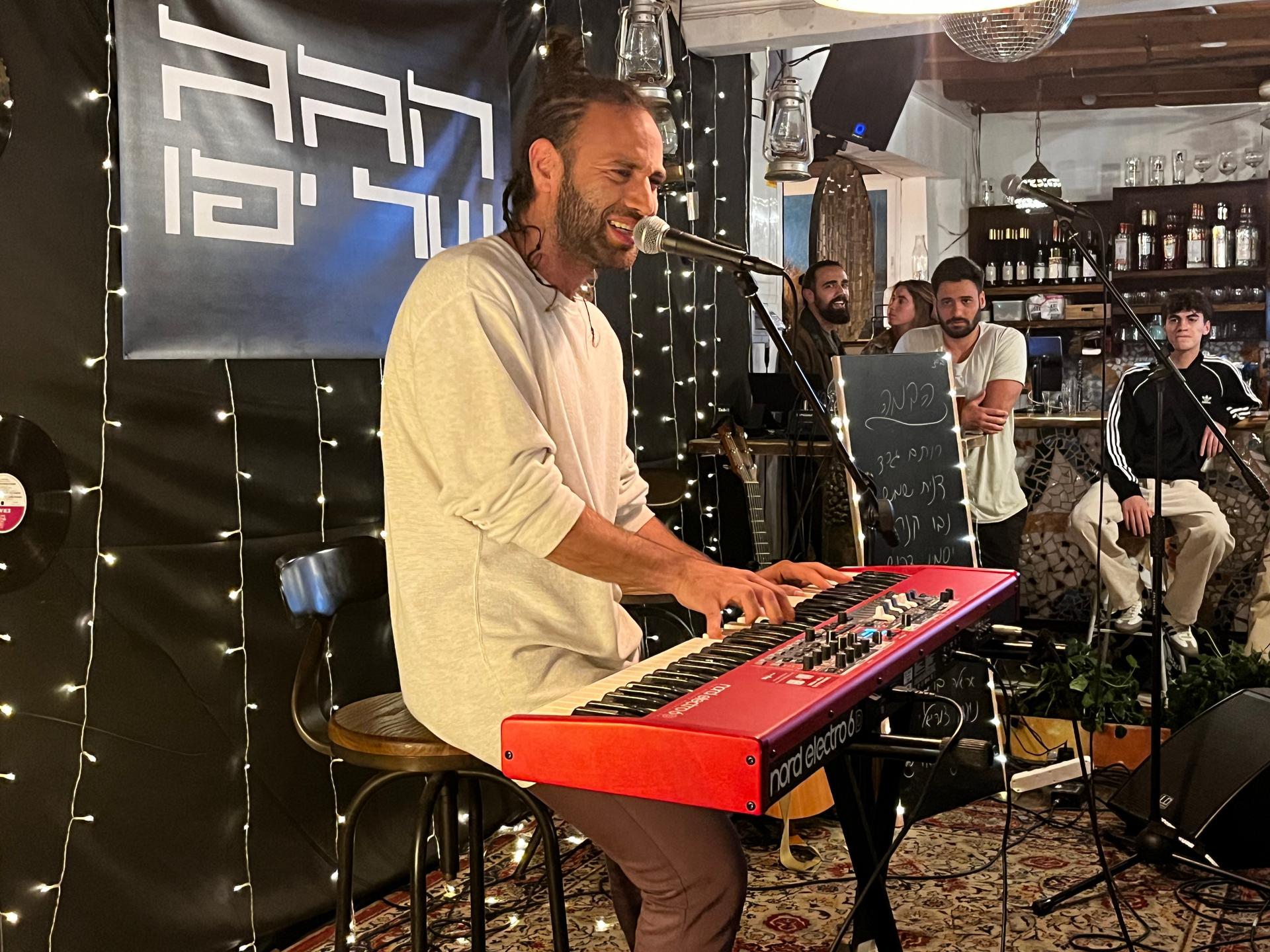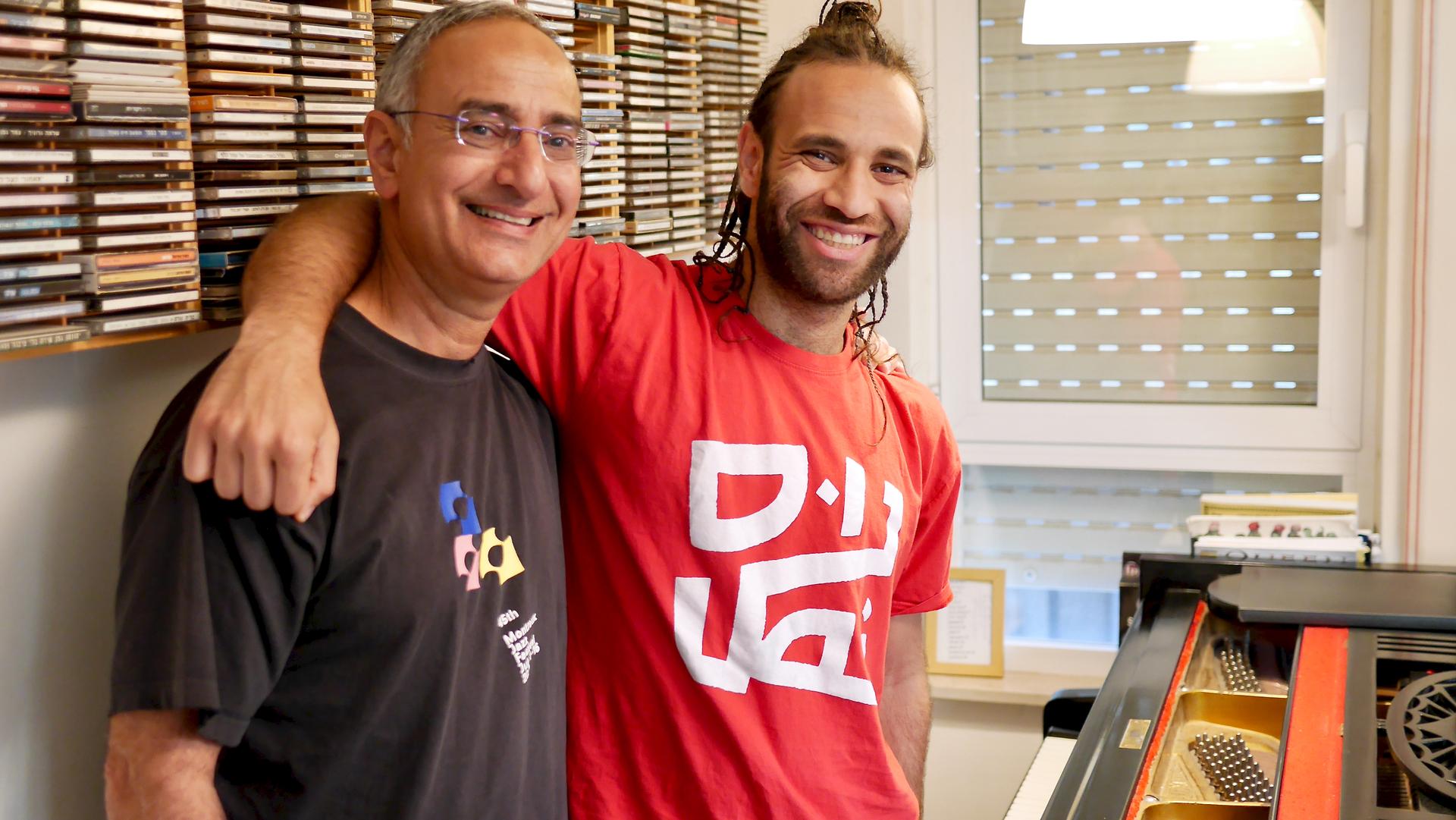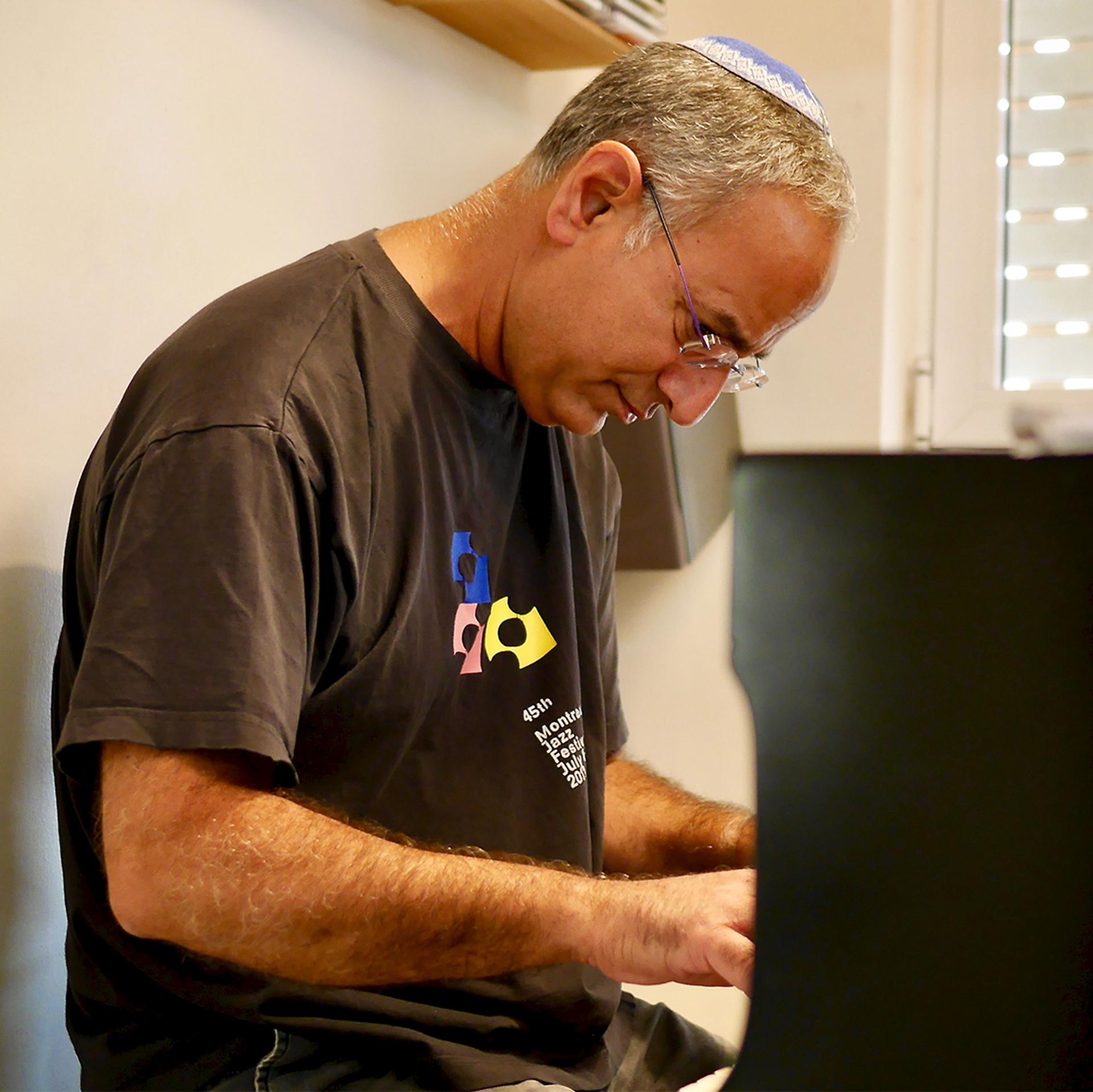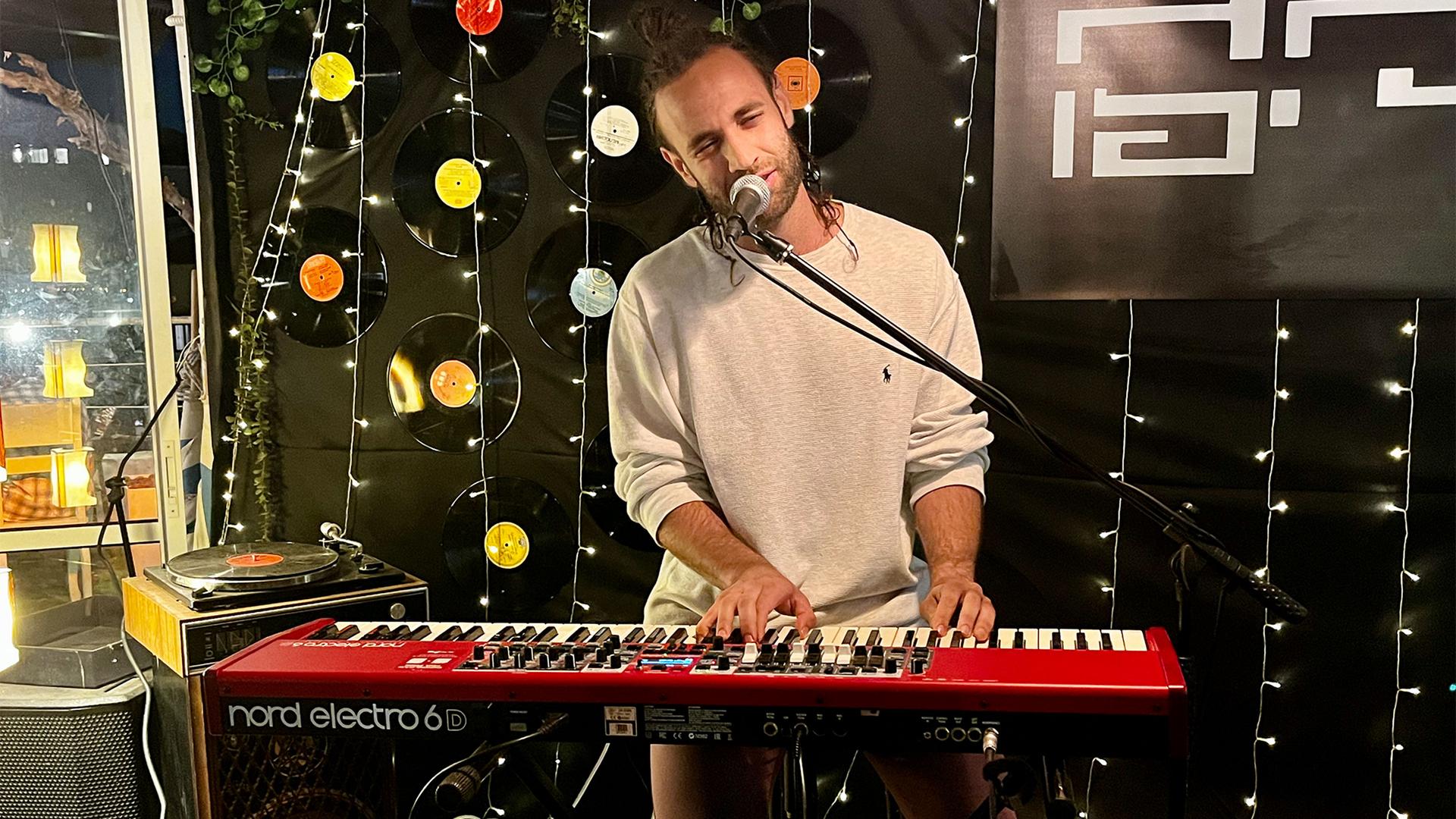There’s an expression in Arabic — nus nus — that roughly translates to “so-so” or “half-and-half.”
It’s also the title of a track by 28-year-old Noam Tsuriely, a Jewish Israeli hip-hop artist from Jerusalem, whose debut album drops this summer.
There are many songs that mix both Hebrew and Arabic lyrics, but Tsuriely says they usually miss the point. People end up learning only the verses they understand and ignoring the rest.
So, Tsuriely is trying something different.
“I wanted to make a song that you cannot ignore the other side,” he said. “So, I do … a line in Hebrew, a line in Arabic. And it’s not a line in translation.” He explained that each line is a continuation of the song that can only be understood in its entirety if you understand both languages.
“If you don’t understand both languages, you cannot understand fully what’s happening in your own country.”
“And this is the point of the song,” he added. “If you don’t understand both languages, you cannot understand fully what’s happening in your own country.”
“If we don’t know how to talk, we won’t stop being afraid,” he raps on the track, whose video was shot in Jerusalem’s Old City.

But Tsuriely’s “Nus Nus” hasn’t come without criticism. Some people have attacked him online as a “naïve lefty.” He said, though, that he doesn’t let it bother him.
“I’m not talking about is the Israeli side wrong, or the Palestinian side wrong? This is not my job, to preach to people what to believe,” he said. “My job is to do good in this world. And for me, telling them, ‘Yo! It doesn’t matter which side of the conflict you are [on]. You need to learn to speak with the other side.’”
Tsuriely said this dawned on him during his mandatory army service when he served in the Israeli-occupied West Bank and found himself face-to-face with Palestinian civilians. It was then that he realized that speaking to each other is the only way for the two sides to ever learn to live together.
Moral messages
Tsuriely’s music takes on other issues, as well. One number is called “Greta,” and it is an ode to climate activist Greta Thunberg. He said he finds her to be an inspiration for his own activism. Here are some lyrics from the song:
“She does not take anything lightly, like a Jew in exile —
She is waiting for redemption.
But when anger arises in her, you will not find inaction in her —
Greta is here, and you should cooperate.”
But most of his music is not political at all.
He sings and raps a lot about love, relationships and heartbreak. Because, he said, that’s just who he is.
Hip-hop has been around for a while in Israel and the Palestinian territories. But in recent years, it’s really gone mainstream.

Tsuriely said that what Israeli artists are bringing to their music can be captured by the Yiddish word tachlis, which means, “real” or “the heart of the matter.”
“It’s about being brutally honest, sometimes too brutal,” he said. “But I think in our world, this is what the people want to hear.”
A life-long dream
Tsuriely said he’s wanted to be a rap star since the 6th grade, when he started listening to Eminem and A Tribe Called Quest. He also had a penchant for classic American soul, funk and R&B.

But one of his biggest musical influences is very close to home — his own father, Yinon Tsuriely, who plays the piano and who put together his first jazz band at the age of 16.
As Noam tries to get his career off the ground, Yinon reminds his son that the music business is not easy.
“He’s a big boy and he knows that. And he’s fighting to live his dream, to make it true,” Yinon Tsuriely said. “Because I know that he’s very talented, I believe in him.”
Israel is a small country, but Israelis take their music pretty seriously.
Noam Tsuriely said that his goal is to one day be mentioned alongside the biggest-selling hip-hop artists in Israel — Tuna and Ravid Plotnik.
At a recent showcase for unsigned talent in the seaside town of Jaffa, Tsuriely was the headliner, performing solo on piano and vocals.
Meanwhile, his forthcoming debut album that includes the “Nus Nus” track, will be called, in Hebrew, “Melim, Lachan, veh Chazon,” or “Lyrics, Melody and Vision.”
Related: Mahraganat artists in Egypt are defining hip-hop culture, despite government crackdowns
The story you just read is accessible and free to all because thousands of listeners and readers contribute to our nonprofit newsroom. We go deep to bring you the human-centered international reporting that you know you can trust. To do this work and to do it well, we rely on the support of our listeners. If you appreciated our coverage this year, if there was a story that made you pause or a song that moved you, would you consider making a gift to sustain our work through 2024 and beyond?
